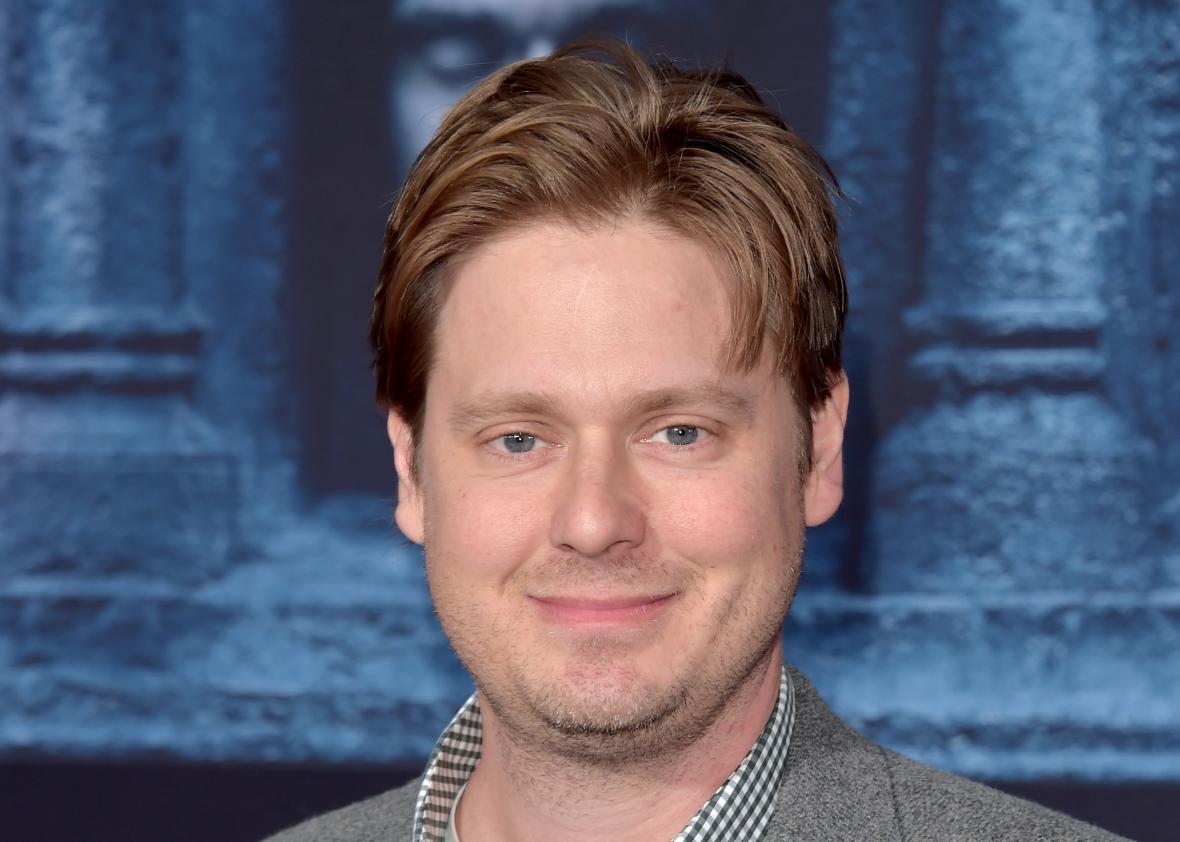Comedian Tim Heidecker’s early career was defined by the grotesque: the neon mandalas, streams of excrement, and unibrowed babies of Tim and Eric Awesome Show, Great Job! Since Awesome Show ended in 2010, his work has grown softer and calmer. In 2011, he started recording aggressively vapid movie reviews with fellow comedian Gregg Turkington, a project that now lives on Adult Swim as the TV series On Cinema at the Cinema. (It’s wonderful and kind of boring and Heidecker has said he hopes to make 20 seasons of it.) That was also the year he teamed up with Awesome Show composer Davin Wood to release the album Starting from Nowhere, a meticulous pastiche of ’70s and ’80s soft rock sung to vague and only slightly nonsensical lyrics. The duo released a second record, Some Things Never Stay the Same, two years later.
The humor on those albums doesn’t really make you laugh. Unlike most comedy, there’s no release of tension, just a steady accumulation of delight. Some reviewers were not on board. Writing in Pitchfork in 2011, Matthew Perpetua acknowledged the precision of the pastiche but wondered what the point was “without funny jokes.” With his first solo album, In Glendale, set to come out May 20, Heidecker has not heeded that line of criticism.
Why is your work moving in a more and more subtle direction?
It’s a product of age, I think, and maturation. Awesome Show was just an explosion of young guys totally unhinged and concentrating on trying to make the funniest possible thing they could ever imagine, without anybody stopping them. That energy gets a little hard to maintain over time. The older we get, that’s the direction you go in. You don’t want to see 40-year-olds in spandex eating diarrhea. It’s just not the direction we feel like going at the moment.
I could imagine the Tim and Eric of 10 years ago being really delighted by seeing 40-year-olds in spandex eating diarrhea.
Mm-hm. It’s not that we don’t find that funny anymore. It’s just—you change. I think our audiences generally get that. I hope most people understand that there’s something more interesting about following a career that changes, or—I don’t want to say evolves, because that sounds like it discounts past work. But it continually grows in a way that is informed by its past.
How does this music relate to the Heidecker & Wood albums?
I see it as a slightly different thing. I wanted to put out something a little more straightforward that wasn’t masked and wrapped up in any kind of joke. I had some encouragement from people in the music business that I was friends with, who were saying, “You should try to put something out a little less silly”—because it’s hard to be taken seriously as a musician when you’re putting out comedy records.
I’m not giving anything up or changing anything about the work I do in general, but this collection of songs isn’t intended to be presented as a big goof. There’s always going to be humor in everything I do. I’m not going to be changing the way I communicate, necessarily. There’s humor in these songs. But the joke isn’t that they exist.
Are you looking to reach a new and different audience with this album?
I understand that I have an audience that exists already from my work with Eric, or whatever. I hope this record transcends that audience. I’m not making it to be only understood by someone who has a frame of reference from my other work. I hope it’s taken on its own merits. But I also acknowledge that the kind of music I make is not really for everybody.
What do you mean?
It’s not the way pop music sounds right now. I understand that it’s a bit nostalgic sounding. I’m fairly limited in my capabilities as a songwriter and as a musician, so I’m really only going to be making songs at a certain level of sophistication. I like organic guitars and pianos and drums, these things that are fairly—some would call bland.
I’ve seen a couple of interviews you did around the Heidecker & Wood albums where you talked about wanting people to be a little bit puzzled about your intentions, almost wanting to fuck with people. Does that hold true of this album as well?
I’m not as interested in that as I might have been before. I understand and acknowledge that that’s going to happen, because the people that are aware of my work are coming to this with a bunch of baggage associated with me. I’m a bit like the boy who cried wolf. I understand that it’s very hazardous to take anything I say at face value or trust what I’m saying. But I didn’t go into making this project with the intention of trying to fuck with people, necessarily.
Why do you think that’s become less interesting to you?
In the past it seemed boring and uncreative to talk about things with a straight face. And often we just didn’t have anything really to say, because we felt like the work spoke for itself. If we were going to do press, video interviews especially, it felt like a good opportunity just to make more stuff. I’m a fan of Andy Kaufman and Albert Brooks and people that used media in any of its forms to create material.
And I’ve always generally attached my own real name to everything I do. That makes it tricky for people to figure out where I’m really coming from. I like the subtlety of that. I like the subtlety of Andy Kaufman making it be a mystery about who the real dude is. But there’s a decision I made with this record that it’s going to be, just … not that.
This interview has been edited and condensed.
